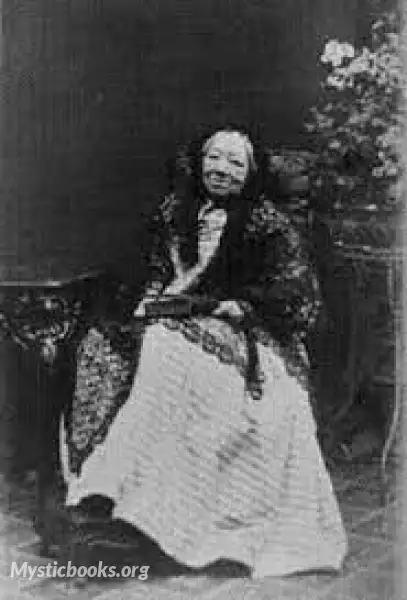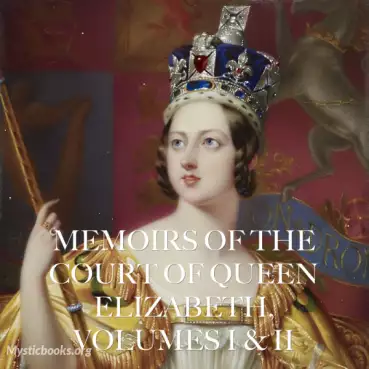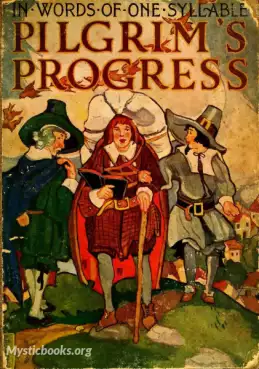
Timeline
Title
Country/Nationality
Lucy Aikin
Lucy Aikin was an English historical writer, biographer and correspondent. She also published under pseudonyms such as Mary Godolphin. Her literary-minded family included her aunt Anna Laetitia Barbauld, a writer of poetry, essays and children's books.
Aikin was born at Warrington, then Lancashire, in 1781. She was the fourth child of a physician, John Aikin (1747–1822), and his wife, Martha Jennings (died 1830). Theirs was a literary family of prominent Unitarians. Lucy's father was also a historian, and her grandfather, likewise called John Aikin (1713–1780), was a Unitarian scholar and theological tutor, closely associated with Warrington Academy. Lucy's aunt was Anna Laetitia Barbauld, a prominent children's writer, while her brother Arthur Aikin (1773–1854) was a chemist, mineralogist and scientific writer, and their brother Charles Rochemont (1775–1847) was adopted by Barbauld and became a doctor and chemist. Another brother, the architect Edmund Aikin (1780–1820), wrote influential works about architecture.
Lucy Aikin lived with her parents in Great Yarmouth and Stoke Newington until the death of her father in 1822, when she moved to Hampstead. There, apart from a short interval in Wimbledon, she spent the remainder of her life.
She briefly attended a day school in Yarmouth, but was largely educated privately by her father and her aunt, an early critic of the education system. She "read widely in English, French, Italian, and Latin literature and history," began publishing for magazines at the age of 17, and was soon assisting her father as an editor of his writings.
ikin's works delve into the artistic, social, and literary sides of her period, rather than its religious, military or parliamentary history.
In 1810 appeared her first considerable work, Epistles on Women, Exemplifying their Character and Condition in Various Ages and Nations, with Miscellaneous Poems, and in 1814 her only work of fiction, entitled Lorimer, a Tale. Those were just early efforts, but her reputation was gained wholly by historical works published between 1818 and 1843: Memoirs of the Court of Queen Elizabeth (1818); Memoirs of the Court of James I. (1822); Memoirs of the Court of Charles I. (1833); and the Life of Addison (1843). The last of these, containing many letters of Addison never before published, was the subject of an essay by Macaulay, who while praising Aikin's other works, and especially her Memoirs of the Court of James I, observed that she was "far more at home among the ruffs and peaked beards of Theobalds than among the steenkirks and flowing periwigs which surrounded Queen Anne's tea table at Hampton."
Of her other memoirs, she herself wrote on completing her Charles I, "I am resolved against proceeding farther with English sovereigns. Charles II is no theme for me: it would make me condemn my species." Aikin also wrote a life of her father, and of her aunt, Mrs Barbauld, and many minor pieces.
Like Barbauld, Aikin was interested in early education, and as such published several works to assist young readers: Poetry for Children: Consisting of Short Pieces to be Committed to Memory (1801), Juvenile Correspondence or Letters, Designed as Examples of the Epistolary Style, for Children of Both Sexes (1811), An English Lesson Book, for the Junior Classes (1828), and The Acts of Life: of Providing Food, of Providing Clothing, of Providing Shelter (1858). Under the pseudonym Mary Godolphin, Aikin also contributed as an editor to versions of Pilgrim's Progress, Robinson Crusoe, Swiss Family Robinson, Aesop's Fables, Evenings at Home (by her father and aunt), and Sandford and Merton written "in Words of One Syllable".
Aikin never married or had children. She lived her whole life with family, notably her parents and her niece, although she did briefly live with her nephew in London.
Politically Aikin was a staunch feminist, and religiously she was a Unitarian.
Lucy Aikin died of influenza in 1864 in Hampstead, then just north of London, where she had lived for 40 years. At the time of her death, Aikin had less than €9,000. Her niece Anna Letitia Le Breton took over her literary legacy. Aikin's Memoirs, Miscellanies, and Letters were published in 1864, as was an edited version of her correspondence with Channing ten years later, in 1874
Books by Lucy Aikin

Memoirs of the Court of Queen Elizabeth, Volumes I & II
Memoirs of Queen Elizabeth from a variety of sources within the monarch's court, compiled and interpreted by Lucy Aikin.

The Pilgrim's Progress in Words of One Syllable
The entire book is presented as a dream sequence narrated by an omniscient narrator. The allegory's protagonist, Christian, is an everyman character, and the plot centres on his journey from his hometown, the "City of Destruction" ("this world"), to...

Swiss Family Robinson in Words of One Syllable
The Swiss Family Robinson is a novel by Johann David Wyss, first published in 1812, about a Swiss family of immigrants whose ship en route to Port Jackson, Australia, goes off course and is shipwrecked in the East Indies. The ship's crew is lost, but...

Robinson Crusoe in Words of One Syllable
Mary Godolphin was the pseudonym of Lucy Aikin who undertook translating great literature into single-syllable words so that young readers could enjoy plots that were considerably more interesting than, say, the McGuffey readers of the 1880's or the...